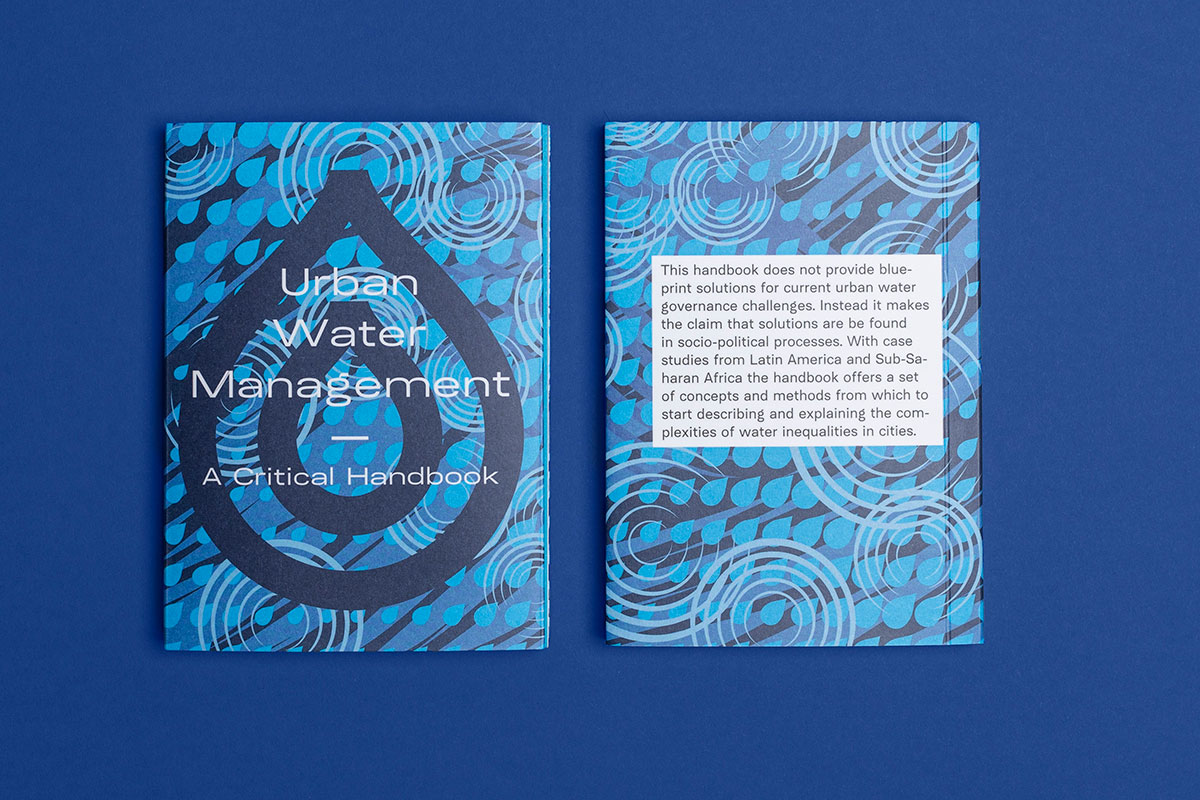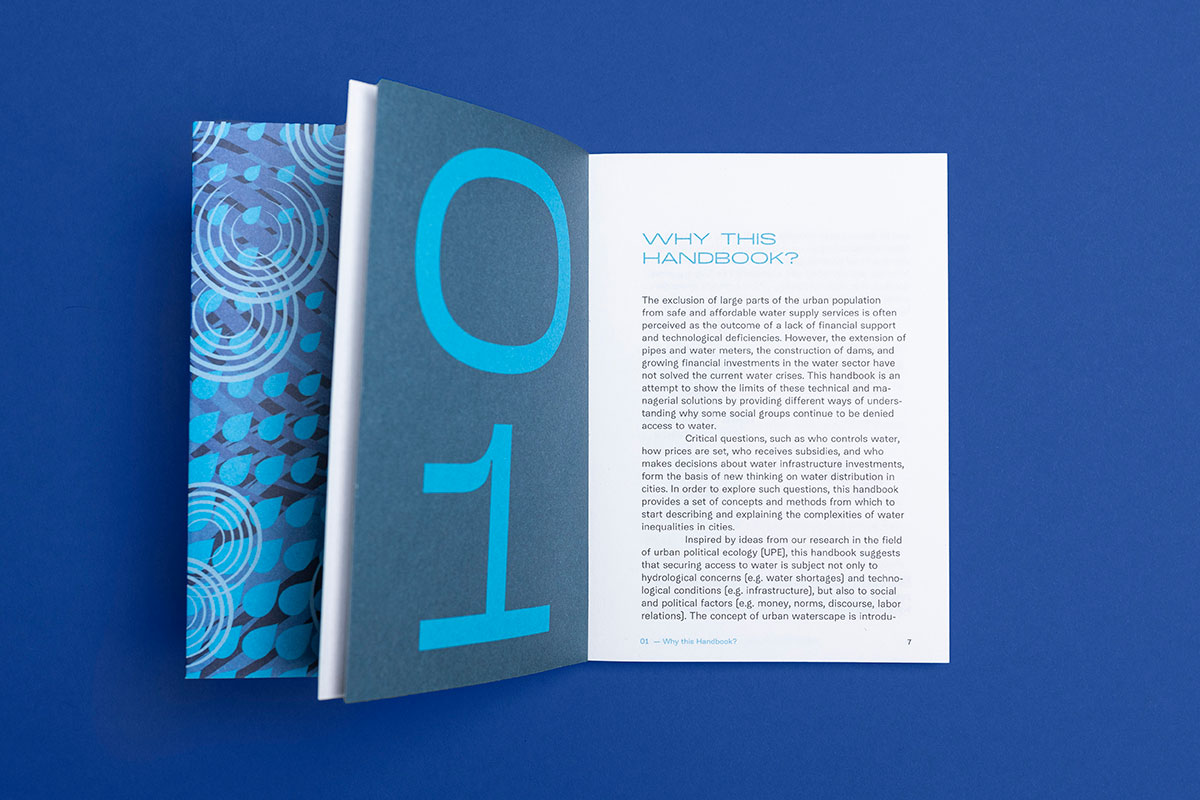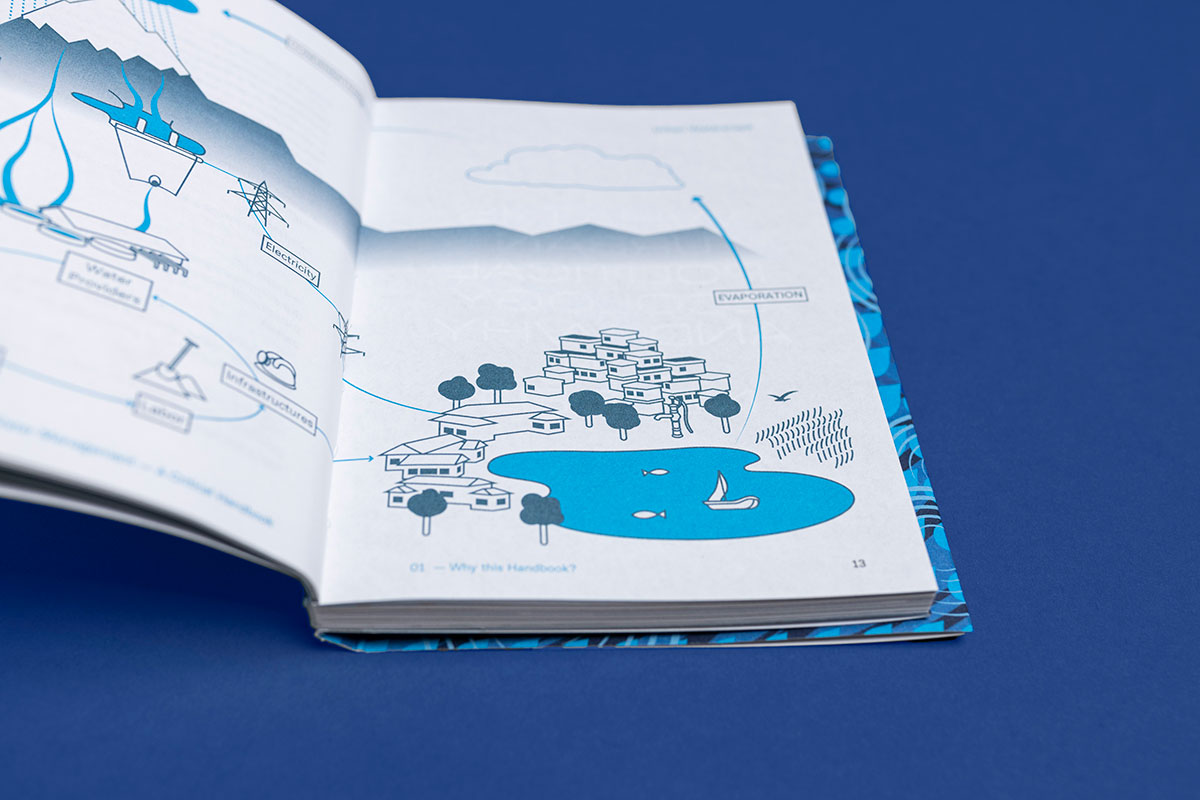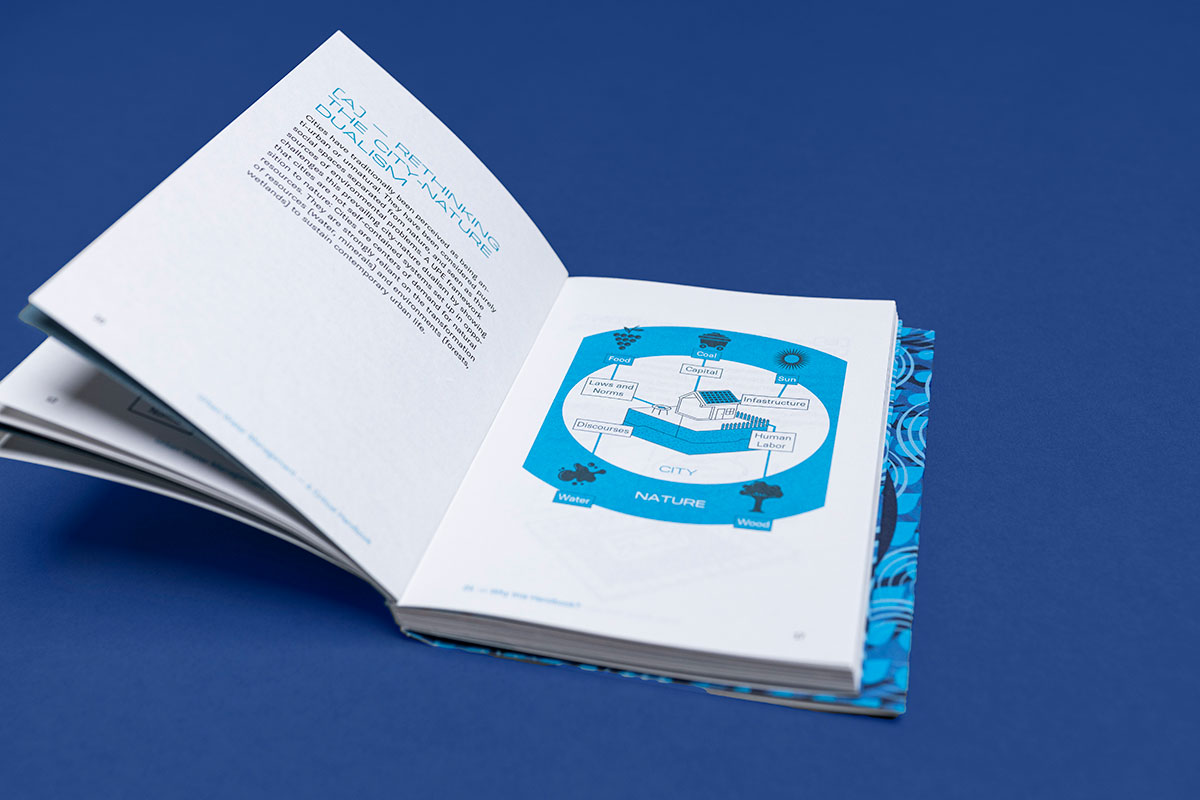
CUW publishes books, articles, educational material and policy papers that examine inequalities in access to water in cities, and their material and social effects.
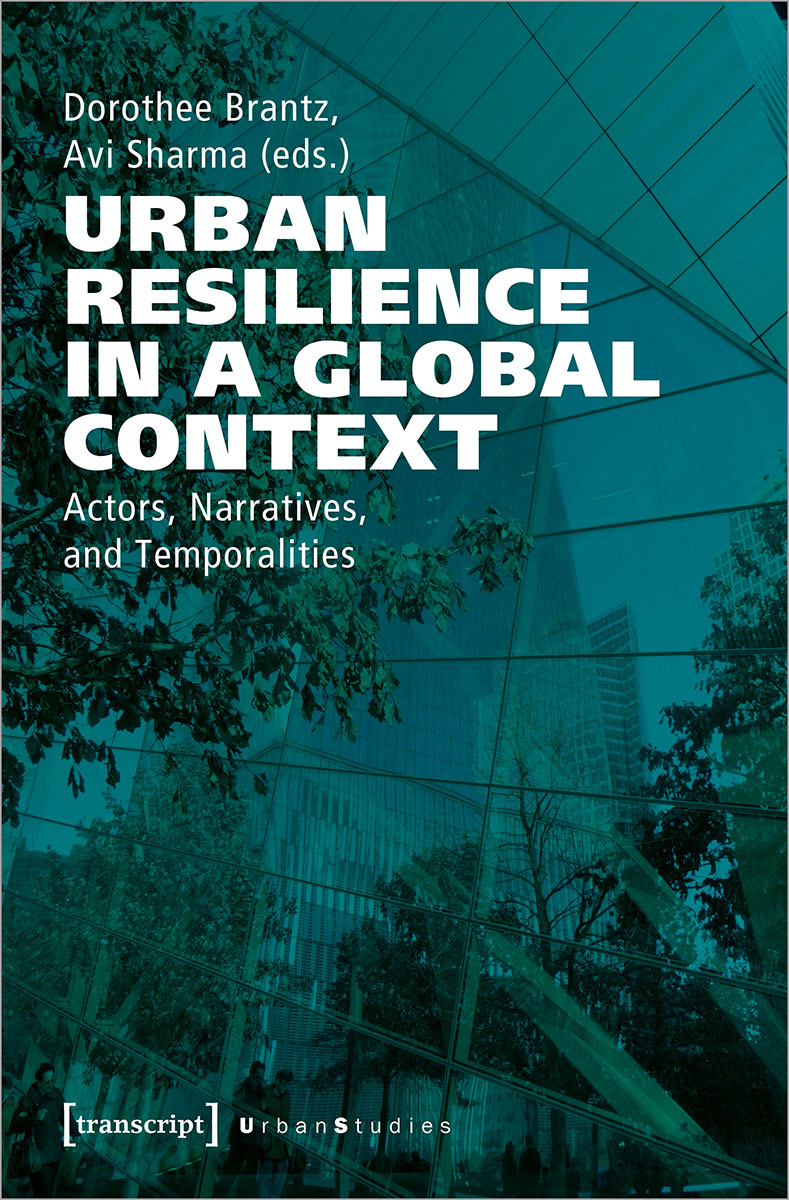
Building Resilience through Commercial Relatons: The Formalization of Carwash Sites in Medellín
Transcript Verlag, 2020
Discourses of resilience tend to recognize the everyday capacities of the urban poor to overcome threats posed by extreme socio-natural events. This is the case of Medellín, a city that was labeled in 2013 as one of the most resilient cities in the world for the capacity of its residents to recover from violence and criminality as well as floods and landslides. This chapter provides a more critical lens of what a resilient city entails by looking at the recent engagements of Medellín’s public multi-utility company to protect the urban poor from adversity in order to reduce water losses and secure revenues. It does so by taking the process of formalization of carwash sites as the main empirical reference. As the utility company faces enormous challenges to control informal connections in its centralized water network, it has deployed different strategies in which discourses of water scarcity and socio-technical infrastructures converge to facilitate formalization. Thus, I argue that what makes carwash resilient is attributed not to their day-to-day survival strategies, but to their capacity to make claims on the state, which is granted by their formal recognition as consumers. In other words, resilience is built upon the capacity of the water company to establish commercial relations with carwash sites rather than the inventiveness of this marginalized sector to cope with an uncertain and unpredictable future.
In collaboration with the Center for Metropolitan Studies (CMS), Technische Universität Berlin
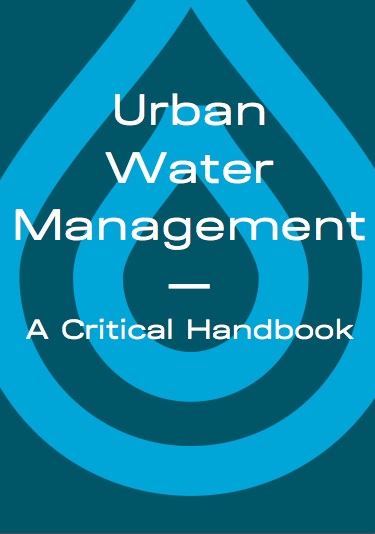
Urban Water Management – A Critical Handbook
Trier University, 2018
The exclusion of large parts of the urban population from safe and affordable water supply services is often perceived as the outcome of a lack of financial support and technological deficiencies. However, the extension of pipes and water meters, the construction of dams, and the growing financial investments in the water sector have not solved the current water crises. This handbook is an attempt to show the limits of these technical and managerial solutions by providing different understandings of why some social groups continue to be excluded from having access to water.
Critical questions such as who controls water, how prices are set up, who receives subsidies, who takes decisions about water infrastructure investments form the basis for new thinking on water distribution in cities. In order to explore such questions, this handbook provides a set of critical concepts and methods from which to start describing and explaining the complexities around water inequalities in cities.
Inspired by ideas from our research in the field of urban political ecology (UPE), this handbook suggests that securing access to water is subject not only to hydrological (e.g. water shortages) and technological conditions (e.g. infrastructure), but also to social and political factors (e.g. money, norms, discourses, labor relations). The concept of urban waterscape is introduced to demonstrate how the flows of water in cities are best understood as interconnected biophysical and social-political processes. Key elements of the urban waterscape are identified and illustrated to help tracing the political, historical and geographical contexts in which water inequalities are (re)produced.
Photos © Rike van Der Straeten
In collaboration with the WaterPower Research Group, Trier University
Design, Layout & Illustration Benn Zorn | aufsiemitgebrüll
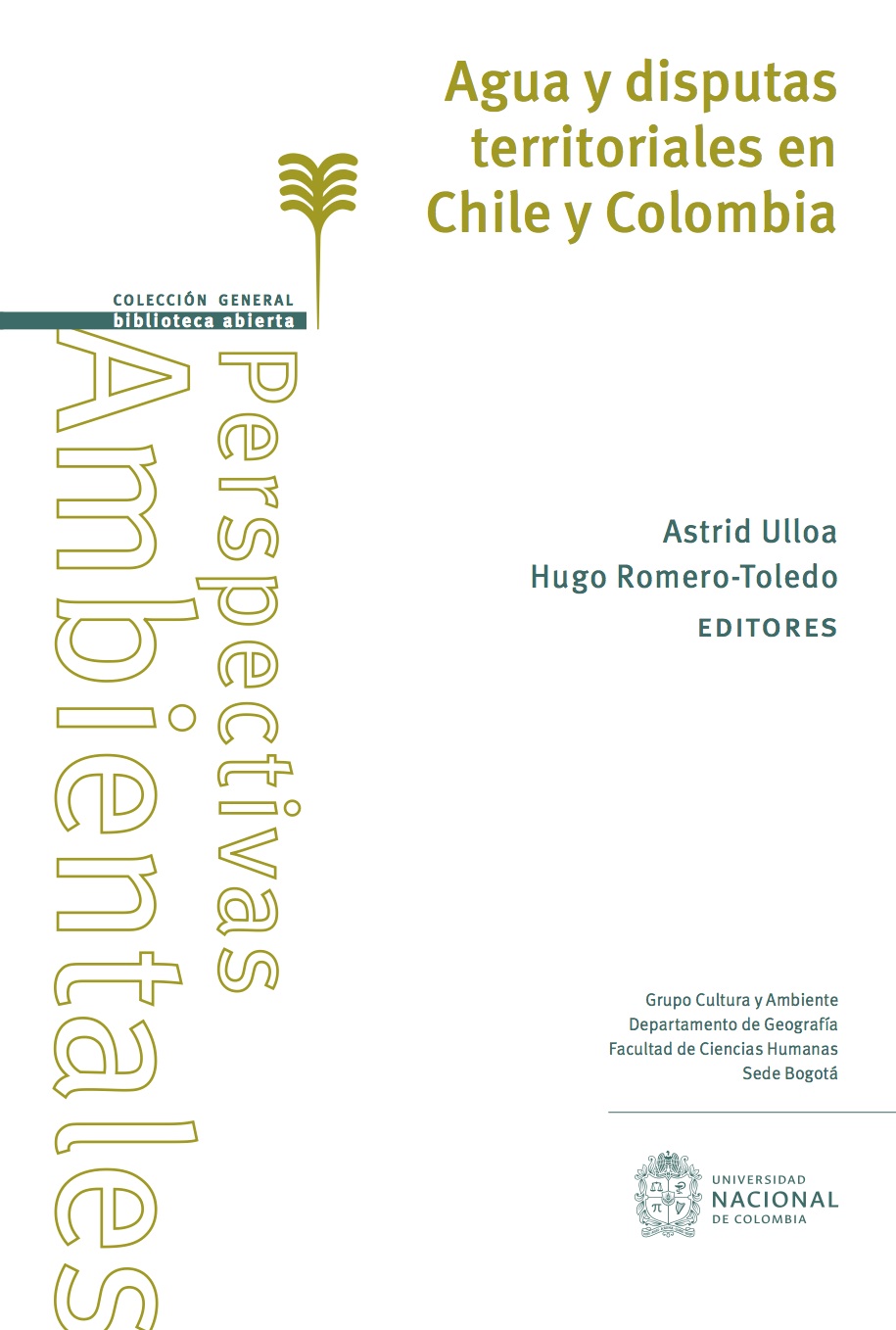
Luchando por lo público, reivindicando la ciudadanía: prácticas cotidianas de acceso al agua en zonas de alto riesgo en Medellín, Colombia
Universidad Nacional de Colombia, 2018
En este capítulo se examinan formas concretas en las que el acceso al agua es importante, no sólo por ser necesario para sostener la vida humana, sino también políticamente, en tanto que es una herramienta valiosa para el reconocimiento de la ciudadanía. Partiendo de un estudio de caso de dos barrios ubicados en las periferias que están catalogadas como zonas de alto riesgo en la ciudad de Medellín, en Colombia, esta investigación revela cómo los habitantes de estos barrios los cuales están excluidos del servicio formal, luchan por asegurar el acceso al agua, mientras la empresa pública de la ciudad se consolida rápida y exitosamente como multilatina. Aunque el acceso al agua ha sido cada vez más objeto de reformas orientadas al mercado, a la compañía le ha resultado difícil controlar y domesticar por completo este recurso esencial. La naturaleza (el agua) desempeña un papel fundamental en las formas en que estos habitantes reivindican lo que es ‘realmente’ público y subvierten las lógicas neoliberales de la compañía de agua. Al explorar la relación existente entre redes de infraestructura, ciudadanía y acceso al agua, el capítulo argumenta que las prácticas cotidianas ejercidas por los habitantes que viven en zonas de alto riesgo se ven conformadas en gran medida no sólo por el carácter biofísico y espacial del agua en sí, sino también por cómo el agua es técnicamente diferenciada por la compañía de agua.
In collaboration with the Department of Geography, National University Bogotá
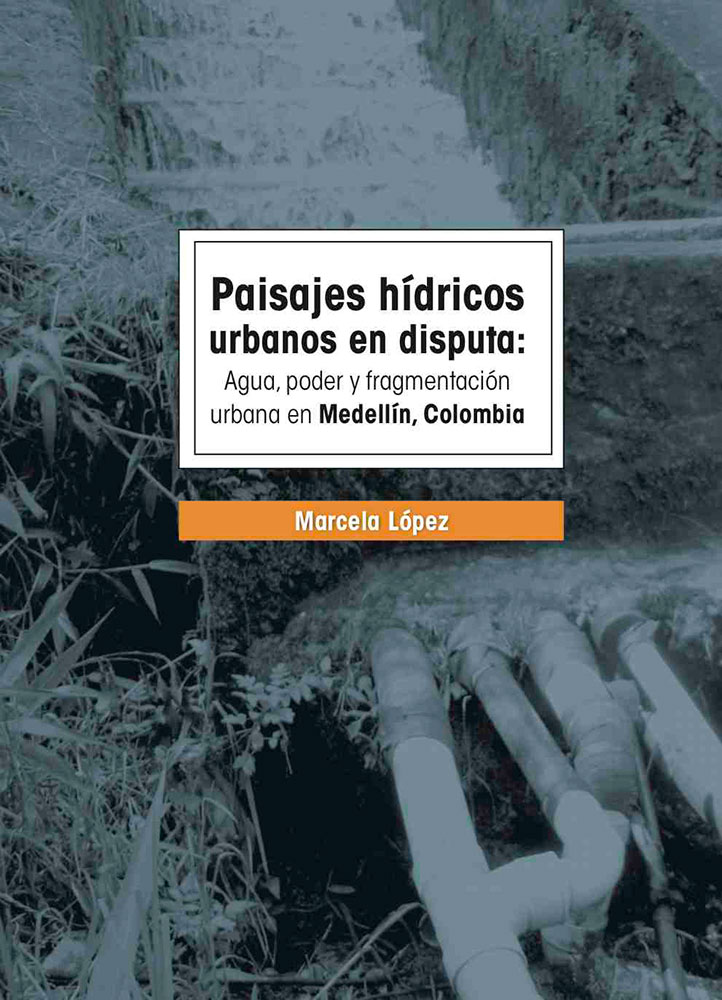
Paisajes Hídricos Urbanos en Disputa: Agua, Poder y Fragmentación Urbana en Medellín, Colombia
CONFIAR, Penca de Sábila, PSI and SINPRO, 2016
Este libro explora como el acceso al agua se ha convertido en terreno crucial en el que se consolidan y a la vez se resisten las lógicas de mercado. Con base en una investigación realizada en Medellín, Colombia, el presente estudio investiga la paradójica situación del acelerado surgimiento de Empresas Públicas de Medellín (EPM) como multilatina, por un lado, y el creciente número de viviendas desconectadas de las redes formales de suministro de agua, en particular en zonas de bajos ingresos, por el otro lado.
Al ir más allá de los supuestos dominantes que ofrecen una interpretación estrecha de la desconexión del servicio de agua como resultado de la incapacidad de pago o como problema relacionado exclusivamente a factores técnicos o de gestión, este libro analiza como la compleja interacción entre los discursos de la escasez del agua, las nociones de ciudadanía y las infraestructuras tecnológicas implementadas por la compañía de acueducto se han hecho instrumentales para la (re)producción de las desigualdades en el acceso al agua.
The publication of this book was financed by
CONFIAR – Financial Cooperative
Penca de Sábila – Ecological and Cultural NGO
Public Services International (PSI)
Syndicate of Workers of Medellín’s Public Utility Company (SINPRO)
Las Empresas Públicas de Medellín enfrentan una inmensa paradoja. En las últimas décadas se han consolidado como una de las organizaciones más exitosas del país y de Latinoamérica en sus sectores de actividad, que incluyen acueducto y alcantarillado, electricidad, gas natural, servicios de telecomunicaciones y recolección de residuos sólidos. Es, con razón, motivo de orgullo de Antioquia y de Colombia. Al mismo tiempo, esta empresa mantiene en promedio al 13% de las viviendas de Medellín desconectadas del servicio de agua. Es una paradoja que Marcela López identifica y analiza con rigurosidad y creatividad a partir de diversas aproximaciones teóricas y un cuidadoso trabajo de investigación de campo en las zonas más pobres de la ciudad. En este excelente libro encontramos no solo las claves para entender esta injusticia socio-ambiental —originada, entre otras, en las formas de relacionamiento de la empresa con el Municipio de Medellín—, sino también imaginativas recomendaciones de la autora para superarla. Un libro de obligada lectura para todos los interesados en cómo hacer de Colombia un país más justo en los ámbitos social y ambiental, ahora que intentamos construir La Paz.
Manuel Rodríguez Becerra – Presidente Foro Nacional Ambiental
La privatización de los servicios públicos implica la pérdida de soberanía y la mercantilización de los bienes comunes como el agua, el detrimento del patrimonio público y la denegación de los derechos humanos que se garantizan a través de ellos, como el acceso y suministro de agua potable. Este libro busca hacer una contribución a los actuales debates académicos sobre el neoliberalismo en las ciencias sociales, investigando cómo las empresas públicas que trabajan bajo reformas orientadas al mercado implementan estrategias materiales, discursivas e institucionales particulares para producir y reproducir desigualdades sobre el acceso al agua.
Javier Márquez – Corporación Ecológica y Cultural Penca de Sábila
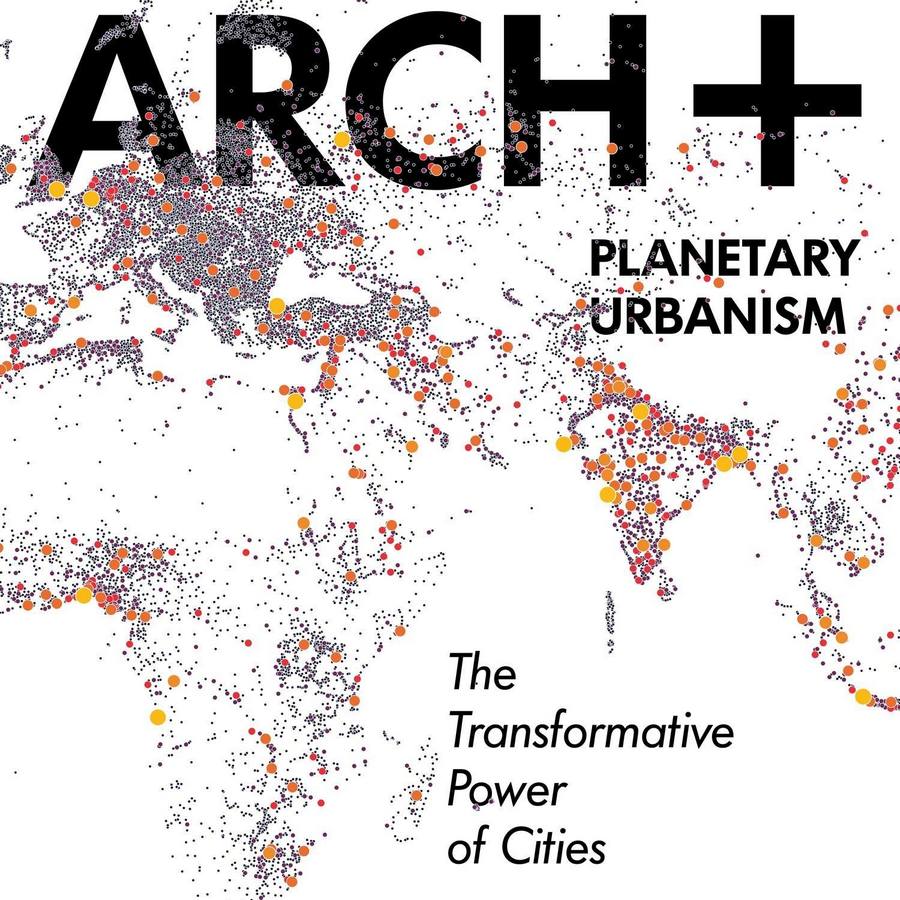
Medellín – Human Right on Water
ARCH + Planetary Urbanism: The Transformative Power of Cities, 2016
Shifts towards neoliberal policies since the 1980s in Latin America have facilitated the configuration of urban waterscapes in ways that inequalities are (re)produced. This economic model holds the promise that market-oriented practices and private ownership are necessary solutions to deliver water services to the growing urban population. Despite the widespread implementation of market-oriented reforms, the continent continues facing the ethical dilemma of how to improve adequate water supply services to low-income households in urban areas.
More information here
Events
Exhibition. Medellín – Human Right on Water
Location: German Pavilion of the UN-HABITAT III Conference in Quito, Ecuador
Date: 15 – 20 of October, 2016
Part of the exhibition “Planetary Urbanism: The Transformative Power of Cities”
For more information on Planetary Urbanism Exhibition
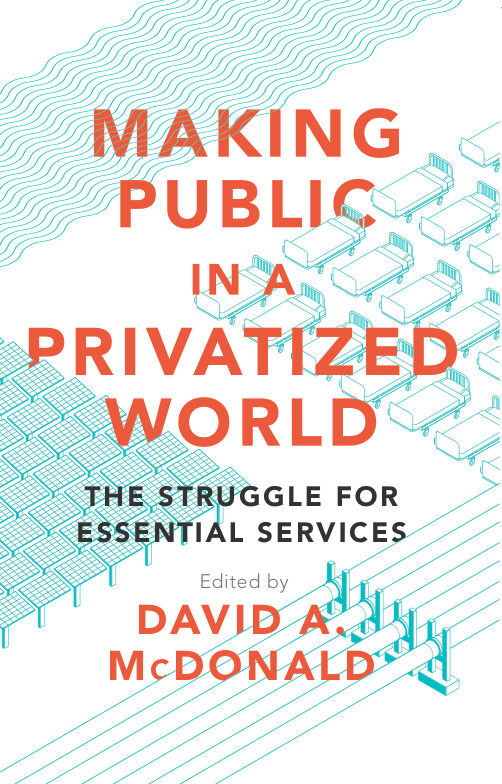
Struggling for Public, Reclaiming Citizenship: Everyday Practices of Access to Water in Medellín, Colombia
Zed Books, 2016
This chapter examines particular ways in which access to water matters politically, not only in its biophysical sense, but also as a powerful tool for citizenship recognition. Drawing on case study conducted in two unserved neighbourhoods located in Medellín, Colombia, this research unravels how households exceeding the urban perimeter struggle to secure access to water, while the city’s public utility company successfully consolidates as a multilatina. Despite that water access has been increasingly subject to market-oriented reforms, the company has found remarkably difficult to fully control and domesticate this essential resource. Nature (water) comes to play a critical role in the ways that low-income households reclaim what is “truly” public and subvert the neoliberal visions of the water company. By exploring the relationship between infrastructure networks, citizenship and access to water, the chapter argues that the everyday practices deployed by unserved households are substantially shaped not only by the biophysical and spatial character of water itself, but also by how water is technically differentiated by the water company.
In collaboration with the Municipal Services Project (MSP)
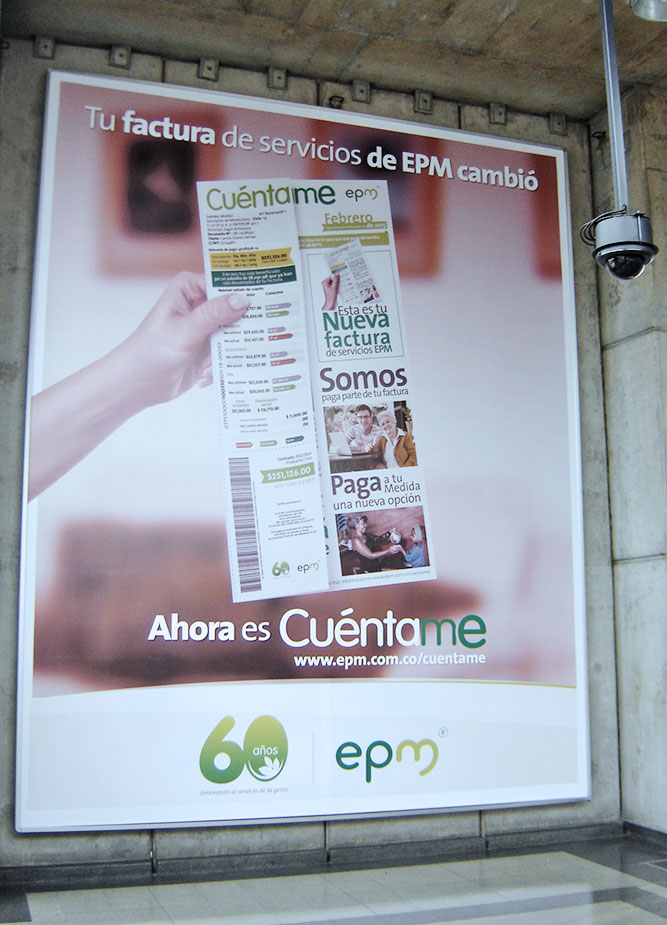
Public Engagement to Improve Water Services in Medellín
Water Integrity Network, 2016
Fighting against corruption is important to water integrity. However, the corruption focus can fall too short in explaining why the urban poor continue to be excluded from affordable and adequate water supply services. By drawing upon case study research conducted in Medellín, Colombia, this brief investigates how water integrity is perceived and experienced by low-income users in their daily attempt to secure access to water. It will be argued that promoting integrity, besides controlling corruption, needs to include user perspectives on accountability, participation, and transparency. Moreover, water utilities should better guide users on what is required of them as clients. Such an approach can help water companies create programs that are more responsive to the needs of the urban poor.
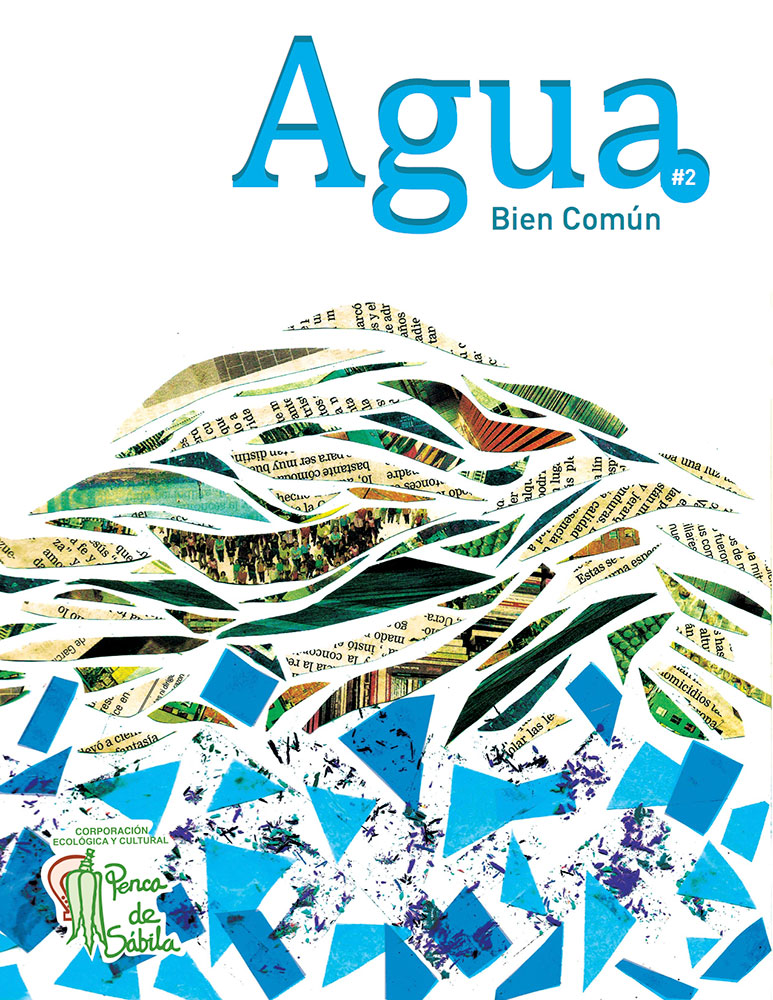
¿Qué es lo Público de Empresas Públicas de Medellín?
Revista Agua Bien Común, 2014
La reciente y exitosa inserción de EPM en el en el mercado internacional constituye un momento adecuado para discutir y reflexionar sobre cuál es el significado de lo público en la ciudad de Medellín. Aunque la transformación de EPM en empresa multilatina ha significado para muchos un motivo de orgullo y admiración, muy poco se sabe cómo afecta este cambio a las poblaciones más vulnerables de la ciudad, qué implicaciones tiene en la definición de lo público y qué papel cumple el Estado en la provisión de servicios básicos. Este artículo pretende ilustrar de qué manera lo público se ha convertido en un terreno de lucha a la luz de la transnacionalización de Empresas Públicas de Medellín (EPM), y por qué el debate público-privado es cada vezmás inadecuado para buscar alternativas que generen servicios más equitativos y eficientes para toda la población. Los resultados muestran que en Medellín hay una gran confusión sobre la responsabilidad que tiene EPM como empresa pública y como prestador de servicios básicos. Adicionalmente, se ilustra cómo la noción de lo público ha sido altamente controversial en los recientes debates relacionados con el acceso al agua, ya que diferentes actores han movilizado este término, en algunos casos, para excluir y marginar pero también para resistir y reclamar derechos fundamentales.
In collaboration with Penca de Sábila
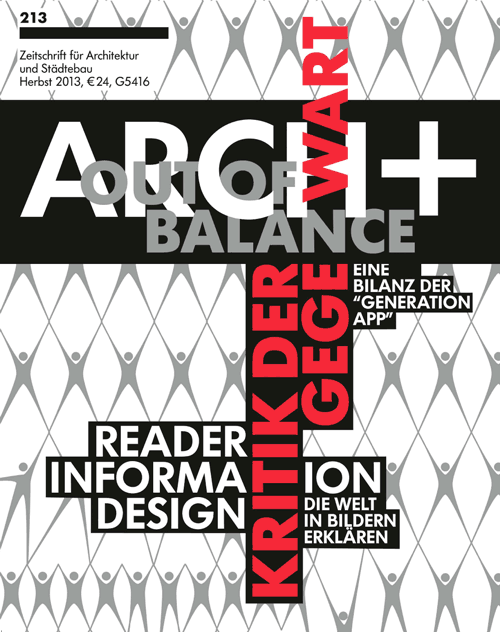
The Human Right to Water? From Continuos Flow To Prepaid Drops// Ein Grundrecht auf Wasser? Vom stetigen Fluss zu vorausbezahlten Tropfen
ARCH + Out of Balance, 2013
Unsere Untersuchung beschäftigt sich mit der Frage, wie neue Formen einer neoliberalen Politik ungleiche städtische Wasserlandschaften entstehen lassen. Dazu werfen wir einen. Näheren Blick auf die Wasserversorgung in Medellín. Die Stadt ist Sitz eines der erfolgreichsten öffentlichen Versorgungsunternehmen Lateinamerikas, der Empresas Públicas de Medellín (EPM) – erfolgreich, was Effizienz, Rentabilität und die Versorgung mit hochwertigen Dienstleistungen betrifft. Das Unternehmen genießt eine “natürliche” Monopolstellung; es ist nicht nur für die Wasserversorgung von mehr als vier Millionen Einwohner des Großraums Medellín zuständig, sondern auch für die Abwasserbeseitigung, Gas- und Stromversorgung und die Telekommunikation
More information here
The material contained in this article was submitted to the international competition Out of Balance-Critique of the Present organized by the ARCH+ Magazine and the Bauhaus Dessau Foundation in 2013 and obtained the second price.
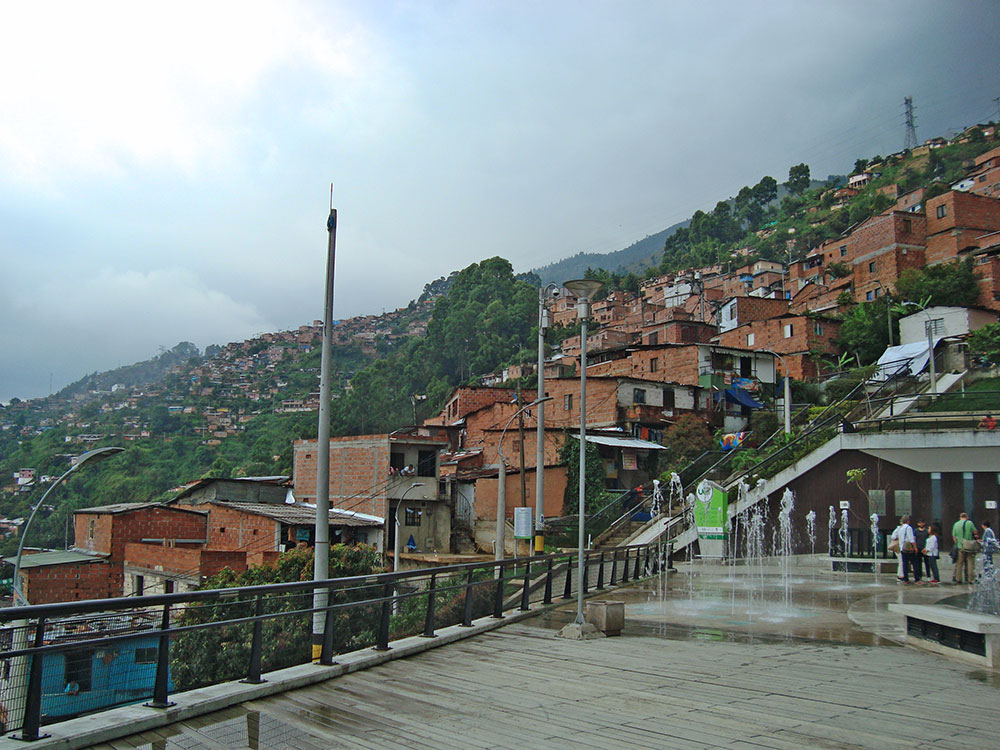
Flows of Water, Flows of Capital: Neoliberalization and Inequality in Medellín’s Urban Waterscape
Freie Universität Berlin, 2013
Over the past two decades, Colombia has witnessed a significant shift in the overall legal and policy domain in the water sector in order to adjust to the demands imposed by neoliberal economic reforms. Particularly in urban areas, this reform model has been deeply contested as it failed to provide low-income population with access to affordable and adequate water supply services. This paper explores how the implementation of market-driven reforms in the water supply sector has become a key factor in reproducing patterns of unequal access to water. By drawing upon case-study research conducted in Medellín, Colombia, this study investigates the causal interconnection between the commercialization and transnationalization of the city’s public multi-utility company as a strategy to be competitive in a globalized environment on the one hand, and the increasing number of households disconnected from the formal water supply networks particularly in low-income areas for non-payment of bills, on the other hand. By bringing together work on urban political ecology and neoliberalization of nature, this paper illustrates how inequalities in access to water in Medellín’s waterscape are facilitated by governance structures which are articulated to neoliberal strategies, whose social power relations are simultaneously sustained by an intertwined set of socioeconomic mechanisms, discursive practices as well as technological infrastructures.





